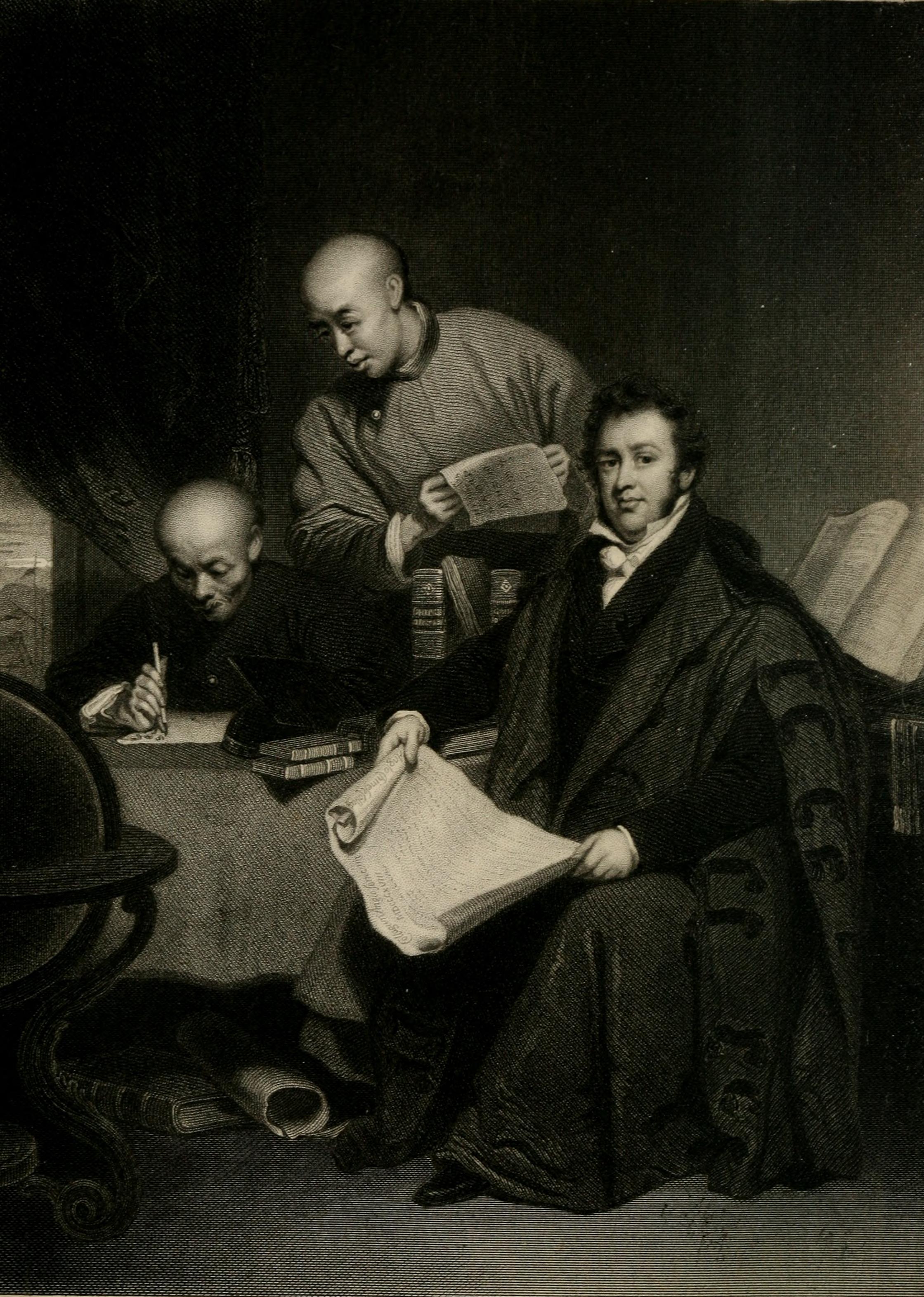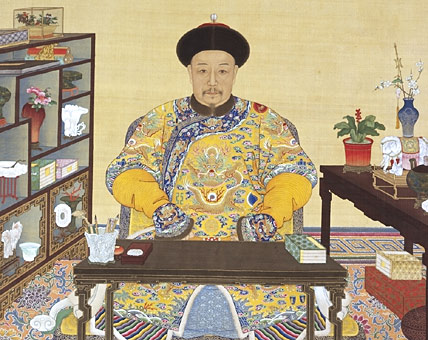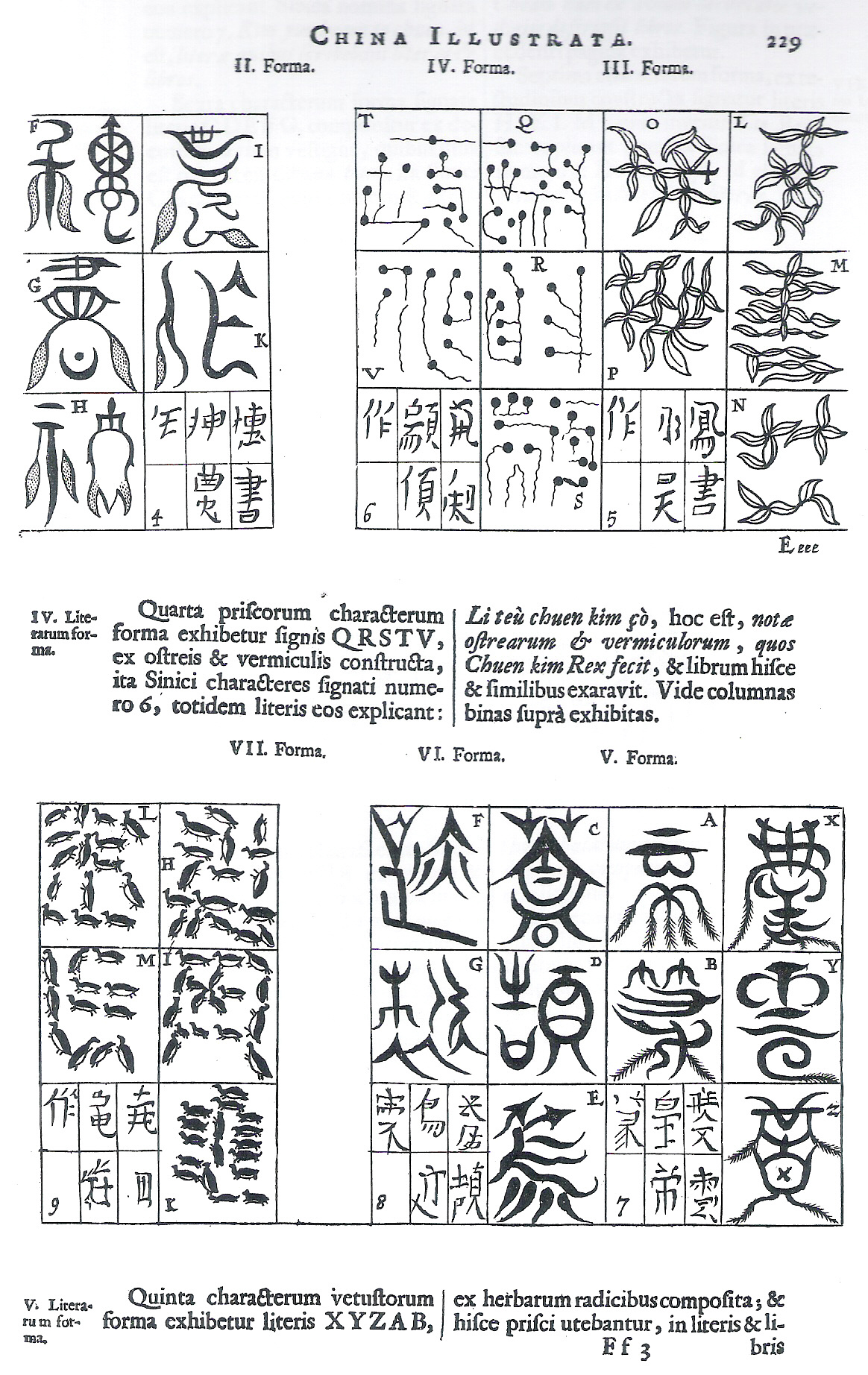|
A Dictionary Of The Chinese Language
''A Dictionary of the Chinese Language, in Three Parts'' or ''Morrison's Chinese dictionary'' (1815-1823), compiled by the Anglo-Scottish missionary Robert Morrison was the first Chinese-English, English-Chinese dictionary. Part I is Chinese-English arranged by the 214 Kangxi radicals, Part II is Chinese-English arranged alphabetically, and Part III is English-Chinese also arranged alphabetically. This groundbreaking reference work is enormous, comprising 4,595 pages in 6 quarto volumes and including 47,035 head characters taken from the 1716 ''Kangxi Dictionary''. However, Morrison's encyclopedic dictionary had flaws, notably failing to distinguish aspirated consonants: the pronunciation ''taou'' is given for both aspirated ''táo'' ( 桃, "peach") and unaspirated ''dào'' (道, "way; the Tao"). History Robert Morrison (1782-1834) is credited with several historical firsts in addition to the first bidirectional Chinese and English dictionary. He was the first Protestant mission ... [...More Info...] [...Related Items...] OR: [Wikipedia] [Google] [Baidu] |
Robert Morrison (missionary)
Robert Morrison, Royal Society, FRS (5 January 1782 – 1 August 1834), was an Anglo-Scottish Protestant missions in China 1807–1953, Protestant missionary to Portuguese Macao, Qing Empire, Qing-era Guangdong, and Dutch Malacca, who was also a pioneering Sinology, sinologist, lexicographer, and translation into Chinese, translator considered the "Father of Anglo-Chinese Literature". Morrison, a Presbyterian preacher, is most notable for his work in China. After twenty-five years of work he translated the whole Bible into the Chinese language and baptized ten Chinese believers, including Cai Gao, Liang Fa, and Wat Ngong. Morrison pioneered the Chinese Bible Translations, translation of the Bible into Chinese and planned for the distribution of the Scriptures as broadly as possible, unlike the previous Roman Catholic translation work that had never been published. Morrison cooperated with such contemporary missionaries as Walter Henry Medhurst and William Milne (missionary), Wi ... [...More Info...] [...Related Items...] OR: [Wikipedia] [Google] [Baidu] |
London Missionary Society
The London Missionary Society was an interdenominational evangelical missionary society formed in England in 1795 at the instigation of Welsh Congregationalist minister Edward Williams. It was largely Reformed tradition, Reformed in outlook, with Congregational church, Congregational missions in Oceania, Africa, and the Americas, although there were also Presbyterians (notable for their work in China), Methodists, Baptists, and various other Protestants involved. It now forms part of the Council for World Mission. Origins In 1793, Edward Williams (minister), Edward Williams, then minister at Carr's Lane, Birmingham, wrote a letter to the churches of the Midlands, expressing the need for interdenominational world evangelization and foreign missions.Wadsworth KW, ''Yorkshire United Independent College -Two Hundred Years of Training for Christian Ministry by the Congregational Churches of Yorkshire'' Independent Press, London, 1954 It was effective and Williams began to play an acti ... [...More Info...] [...Related Items...] OR: [Wikipedia] [Google] [Baidu] |
Liang Fa
Liang Fa (1789–1855), also known by other names, was the second Chinese Protestant convert and the first Chinese Protestant minister and evangelist. He was ordained by Robert Morrison, the first Protestant missionary in the Qing Empire. His tract ''Good Words to Admonish the Age'' was influential on Hong Xiuquan, who went on to lead the Taiping Rebellion. Name Liang Fa is the pinyin romanization of Liang's usual Chinese name, which his father used. is the Jyutping romanization of the same name in Cantonese, the usual spoken dialect of Guangdong's natives. His personal name is the common Chinese verb for "to send" but in Chinese grammar can also be understood as its past participle, " e who issent". He is also known as ,. "", "Afa", "" or "". from the Southern Chinese habit of forming affectionate nicknames using the prefix ''Ā-'' (now , formerly ). was apparently his complete name, although it was used less often. It variously appears as "Leang Kung-fa", "Leang K ... [...More Info...] [...Related Items...] OR: [Wikipedia] [Google] [Baidu] |
Cai Gao
Cai Gao (1788–1818), also known as Tsae A-ko and by various other names, was the first Protestant convert in mainland China. He has also been called the first Western-style type-cutter and letterpress printer. Name The real name of China's first Protestant convert is uncertain, although his surname was "almost certainly" . Like those of his family members, his name was recorded only in the missionaries' English romanizations,. which include . , and .. Over the next two centuries, this was variously modernized as , , "Ako", and "Ko". It has become generally accepted that these rendered the given names and . which would be . or Yagao in pinyin. Su and Ying, however, believe the original name to have been which would be in pinyin. Smith also gives the Cantonese form as Family Cai Gao's father was a Cantonese merchant at Macao whose legal wife had borne him no children; Gao's mother was his second concubine. He had an elder brother (born ) whose name variously appears ... [...More Info...] [...Related Items...] OR: [Wikipedia] [Google] [Baidu] |
Jiaqing Emperor
The Jiaqing Emperor (13 November 1760 – 2 September 1820), also known by his temple name Emperor Renzong of Qing, personal name Yongyan, was the sixth emperor of the Qing dynasty and the fifth Qing emperor to rule over China proper. He was the 15th son of the Qianlong Emperor. During his reign, he prosecuted Heshen, the corrupt favorite of his father and attempted to restore order within the empire while curbing the smuggling of opium into China. Assessments of his reign are mixed, either seen as the "beginning of the end" of the Qing dynasty, or as a period of moderate reform that presaged the intellectual movements of the 1860s. Early years Yongyan was born in the Old Summer Palace, 8 km (5 mi) northwest of the walls of Beijing. His personal name, "Yongyan" (永琰), was later changed to "Yongyan" (顒琰) when he became the emperor. The Chinese character for ''yong'' in his name was changed from the more common 永 to the less common 顒. This novelty was ... [...More Info...] [...Related Items...] OR: [Wikipedia] [Google] [Baidu] |
Acts Of The Apostles
The Acts of the Apostles (, ''Práxeis Apostólōn''; ) is the fifth book of the New Testament; it tells of the founding of the Christian Church and the spread of The gospel, its message to the Roman Empire. Acts and the Gospel of Luke make up a two-part work, Luke–Acts, by the same anonymous author. Traditionally, the author is believed to be Luke the Evangelist, a doctor who travelled with Paul the Apostle. It is usually dated to around 80–90 AD, although some scholars suggest 110–120 AD.Tyson, Joseph B., (April 2011)"When and Why Was the Acts of the Apostles Written?" in: The Bible and Interpretation: "...A growing number of scholars prefer a late date for the composition of Acts, i.e., c. 110–120 CE. Three factors support such a date. First, Acts seems to be unknown before the last half of the second century. Second, compelling arguments can be made that the author of Acts was acquainted with some materials written by Josephus, who completed his Antiquities of the J ... [...More Info...] [...Related Items...] OR: [Wikipedia] [Google] [Baidu] |
Thirteen Factories
The Thirteen Factories, also known as the , was a neighbourhood along the Pearl River in southwestern Guangzhou (Canton) in the Qing Empire from to 1856 around modern day Xiguan, in Guangzhou's Liwan District. These warehouses and stores were the principal and sole legal site of most Western trade with China from 1757 to 1842. The factories were destroyed by fire in 1822 by accident, in 1841 amid the First Opium War, and in 1856 at the onset of the Second Opium War. The factories' importance diminished after the opening of the treaty ports and the end of the Canton System under the terms of the 1842 Anglo-Chinese Treaty of Nanking. After the Second Opium War, the factories were not rebuilt at their former site south of Guangzhou's old walled city but moved, first to Henan Island across the Pearl River and then to Shamian Island south of Guangzhou's western suburbs. Their former site is now part of . Terminology The "factories" were not workshops or manufacturi ... [...More Info...] [...Related Items...] OR: [Wikipedia] [Google] [Baidu] |
East India Company
The East India Company (EIC) was an English, and later British, joint-stock company that was founded in 1600 and dissolved in 1874. It was formed to Indian Ocean trade, trade in the Indian Ocean region, initially with the East Indies (South Asia and Southeast Asia), and later with East Asia. The company gained Company rule in India, control of large parts of the Indian subcontinent and British Hong Kong, Hong Kong. At its peak, the company was the largest corporation in the world by various measures and had its own armed forces in the form of the company's three presidency armies, totalling about 260,000 soldiers, twice the size of the British Army at certain times. Originally Chartered company, chartered as the "Governor and Company of Merchants of London Trading into the East-Indies," the company rose to account for half of the world's trade during the mid-1700s and early 1800s, particularly in basic commodities including cotton, silk, indigo dye, sugar, salt, spices, Potass ... [...More Info...] [...Related Items...] OR: [Wikipedia] [Google] [Baidu] |
Jesuit China Missions
The history of the missions of the Jesuits in China is part of the history of Foreign relations of China, relations between China and the Western world. The missionary efforts and other work of the Society of Jesus, or Jesuits, between the 16th and 17th century played a significant role in continuing the transmission of knowledge, science, and culture between China and the West, and influenced Christianity in China, Christian culture in Chinese society today. The first attempt by the Jesuits to reach China was made in 1552 by Francis Xavier, St. Francis Xavier, Navarrese priest and missionary and founding member of the Society of Jesus. Xavier never reached the mainland, dying after only a year on the Chinese island of Shangchuan. Three decades later, in 1582, Jesuits once again initiated Mission (Christian), mission work in China, led by several figures including the Italian Matteo Ricci, introducing Western science, mathematics, astronomy, and visual arts to the Chinese imperial ... [...More Info...] [...Related Items...] OR: [Wikipedia] [Google] [Baidu] |
Latin
Latin ( or ) is a classical language belonging to the Italic languages, Italic branch of the Indo-European languages. Latin was originally spoken by the Latins (Italic tribe), Latins in Latium (now known as Lazio), the lower Tiber area around Rome, Italy. Through the expansion of the Roman Republic, it became the dominant language in the Italian Peninsula and subsequently throughout the Roman Empire. It has greatly influenced many languages, Latin influence in English, including English, having contributed List of Latin words with English derivatives, many words to the English lexicon, particularly after the Christianity in Anglo-Saxon England, Christianization of the Anglo-Saxons and the Norman Conquest. Latin Root (linguistics), roots appear frequently in the technical vocabulary used by fields such as theology, List of Latin and Greek words commonly used in systematic names, the sciences, List of medical roots, suffixes and prefixes, medicine, and List of Latin legal terms ... [...More Info...] [...Related Items...] OR: [Wikipedia] [Google] [Baidu] |
Chinese As A Foreign Language
Chinese as a foreign or second language is when non-native speakers study varieties of Chinese, Chinese varieties. The increased interest in China from those outside has led to a corresponding interest in the study of Standard Chinese (a type of Mandarin Chinese) as a foreign language, the official language of People's Republic of China, mainland China, Taiwan and Singapore. However, the teaching of Chinese language, Chinese both within and outside China is not a recent phenomenon. Western world, Westerners began learning different Chinese varieties in the 16th century. Within China, Mandarin became the official language in the early 20th century. Mandarin also became the official language of Taiwan when the Kuomintang took over control from Japan after World War II. In 2010, 750,000 people (670,000 from overseas) took the Hanyu Shuiping Kaoshi, Chinese Proficiency Test. For comparison, in 2005, 117,660 non-native speakers took the test, an increase of 26.52% from 2004. From 2000 ... [...More Info...] [...Related Items...] OR: [Wikipedia] [Google] [Baidu] |
Qing Empire
The Qing dynasty ( ), officially the Great Qing, was a Manchu-led Dynasties of China, imperial dynasty of China and an early modern empire in East Asia. The last imperial dynasty in Chinese history, the Qing dynasty was preceded by the Ming dynasty and succeeded by the Republic of China (1912–1949), Republic of China. At its height of power, the empire stretched from the Sea of Japan in the east to the Pamir Mountains in the west, and from the Mongolian Plateau in the north to the South China Sea in the south. Originally emerging from the Later Jin (1616–1636), Later Jin dynasty founded in 1616 and proclaimed in Shenyang in 1636, the dynasty seized control of the Ming capital Beijing and North China in 1644, traditionally considered the start of the dynasty's rule. The dynasty lasted until the Xinhai Revolution of October 1911 led to the abdication of the last emperor in February 1912. The multi-ethnic Qing dynasty Legacy of the Qing dynasty, assembled the territoria ... [...More Info...] [...Related Items...] OR: [Wikipedia] [Google] [Baidu] |








